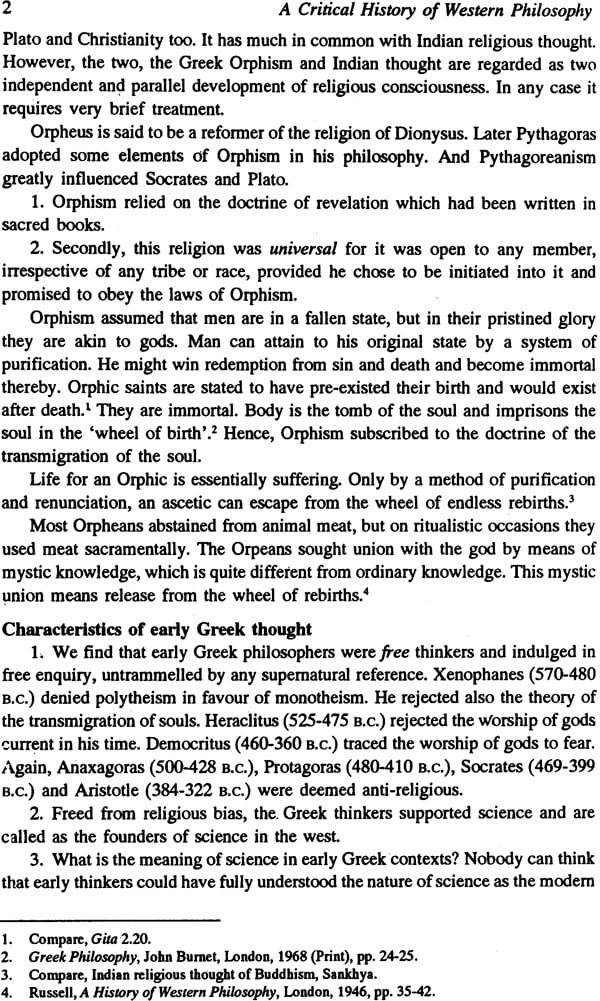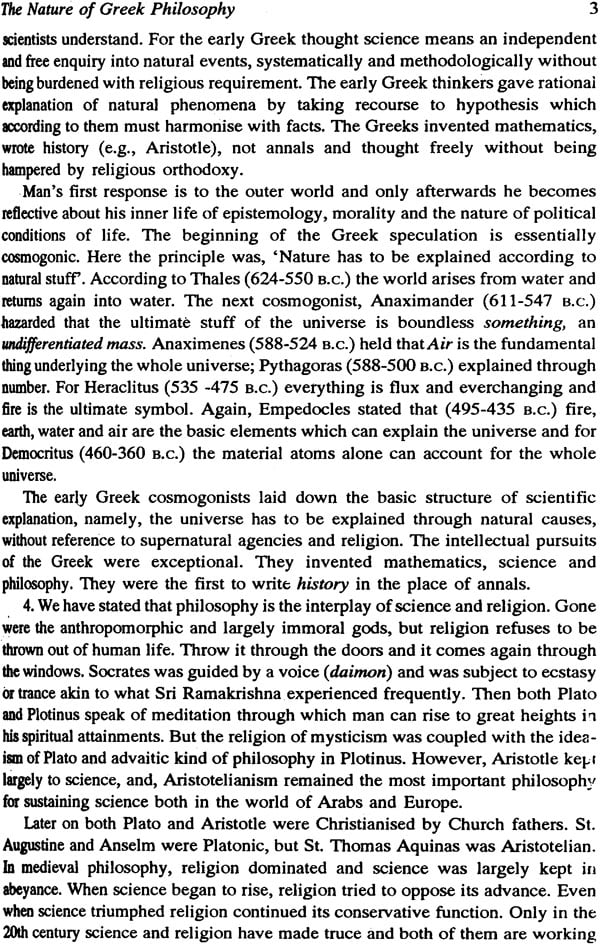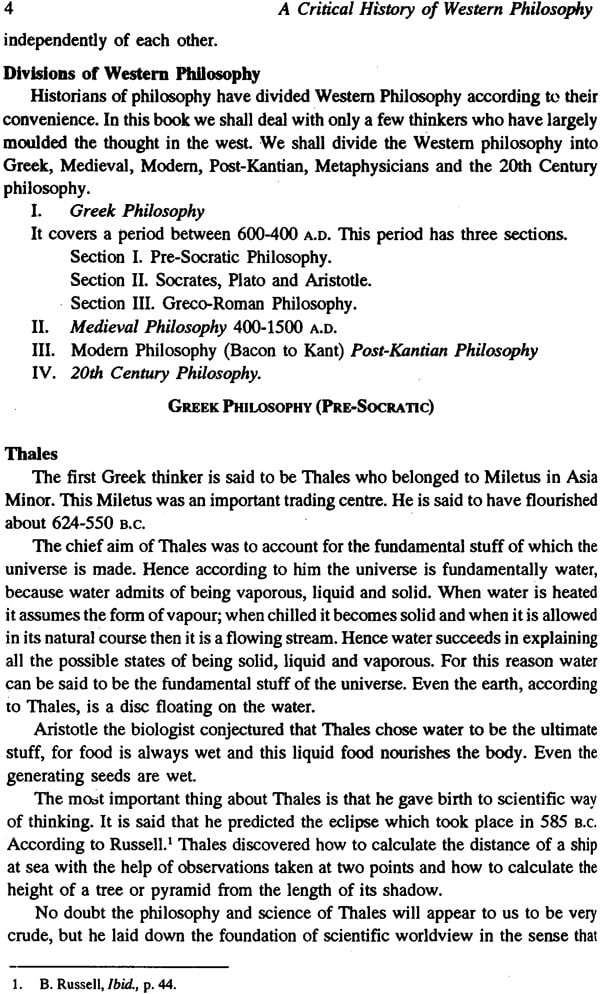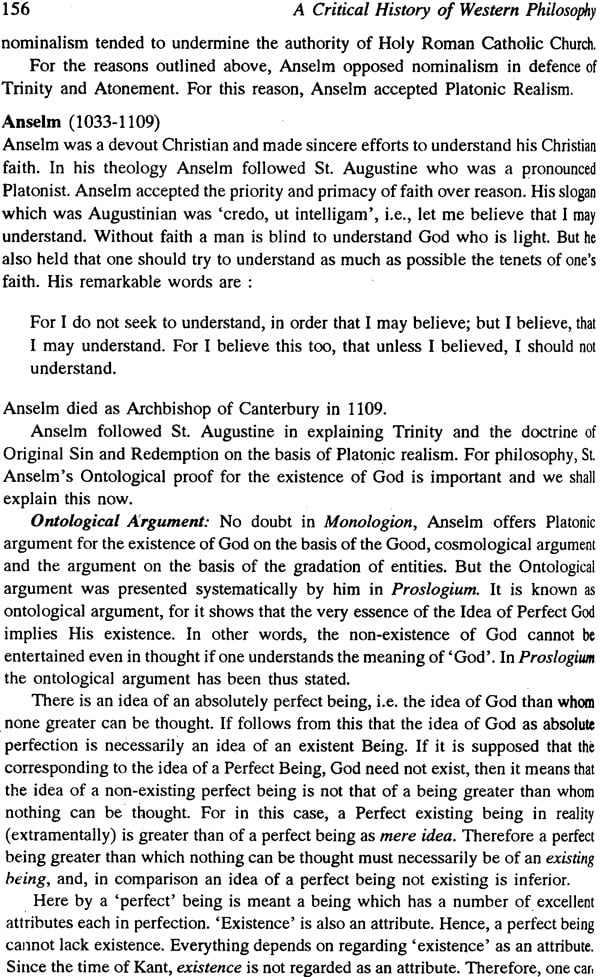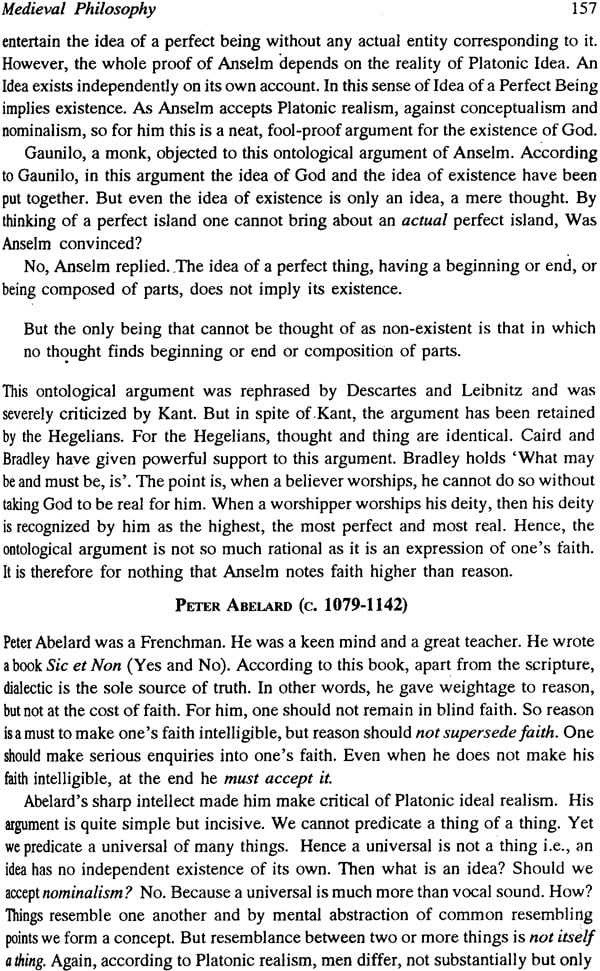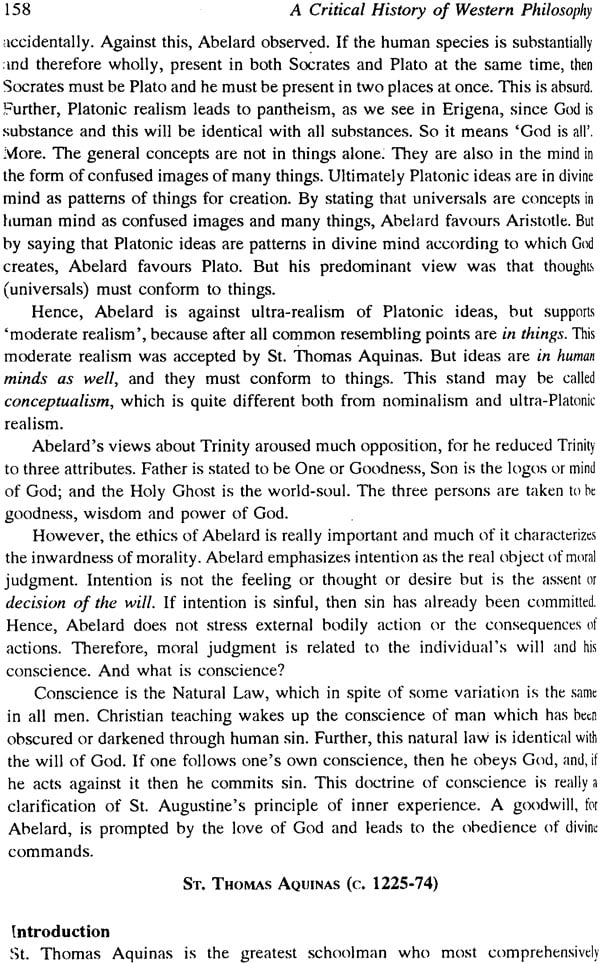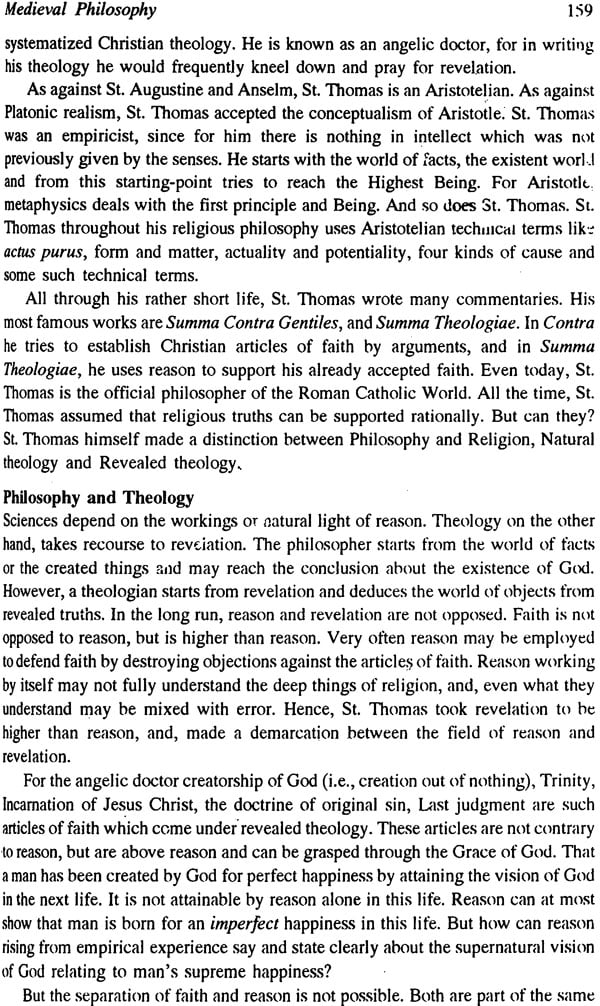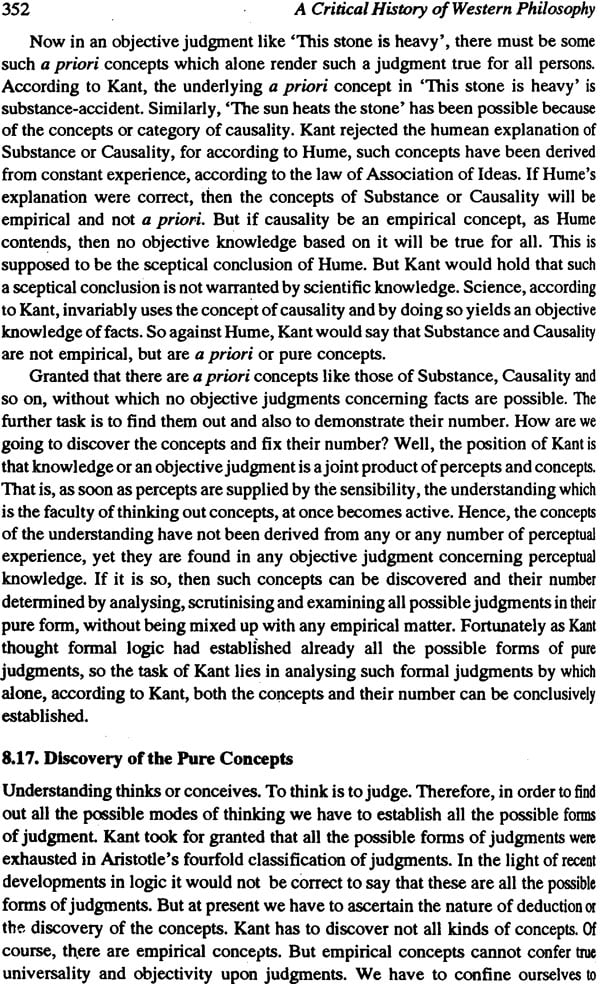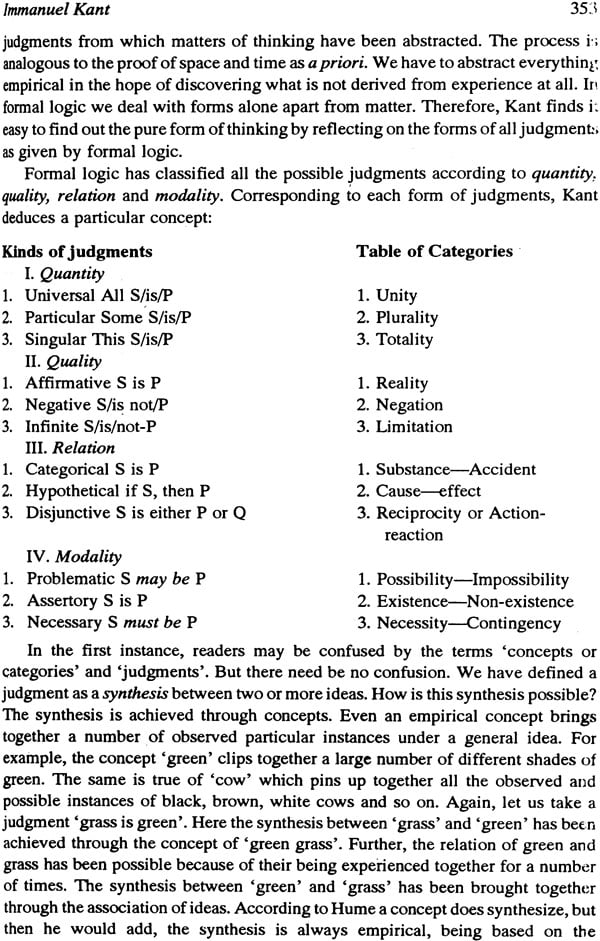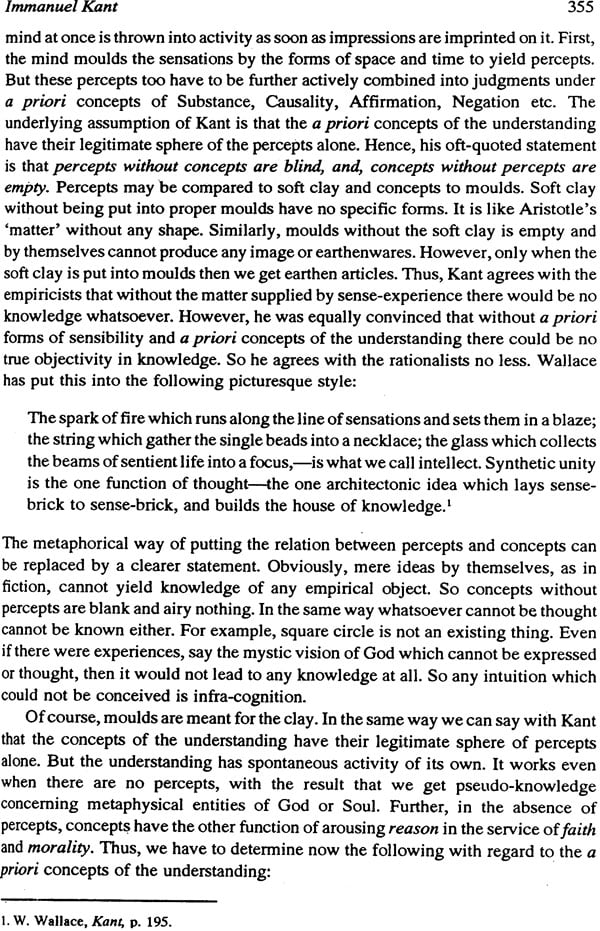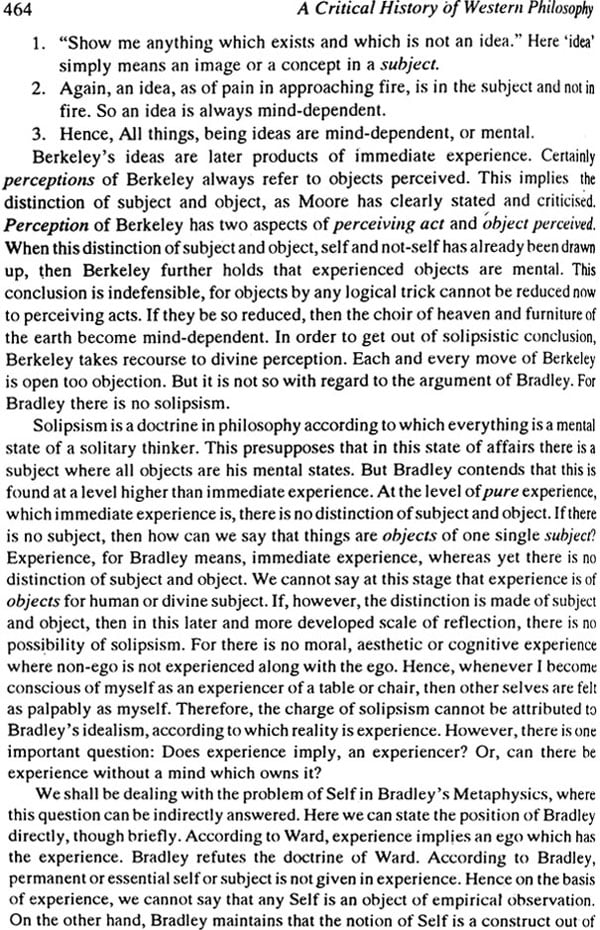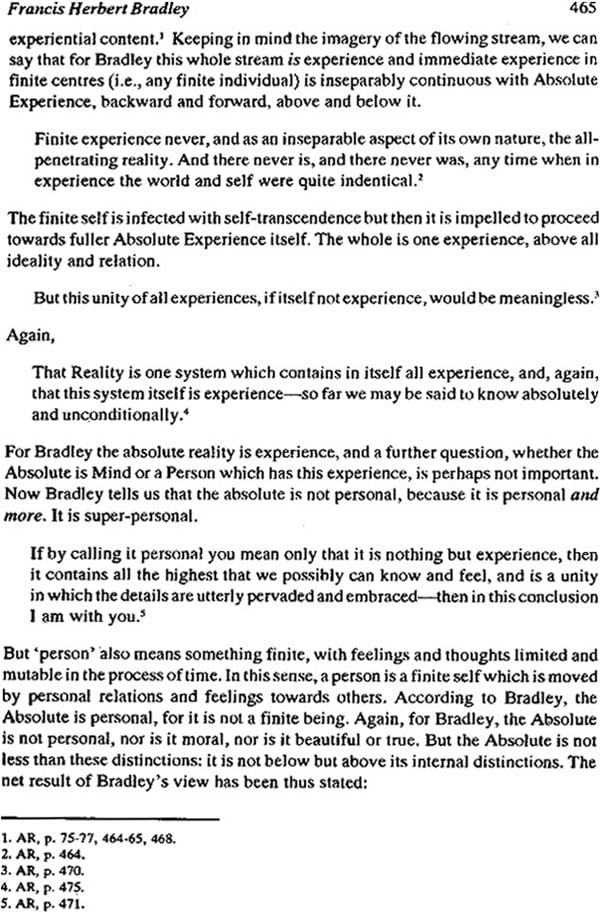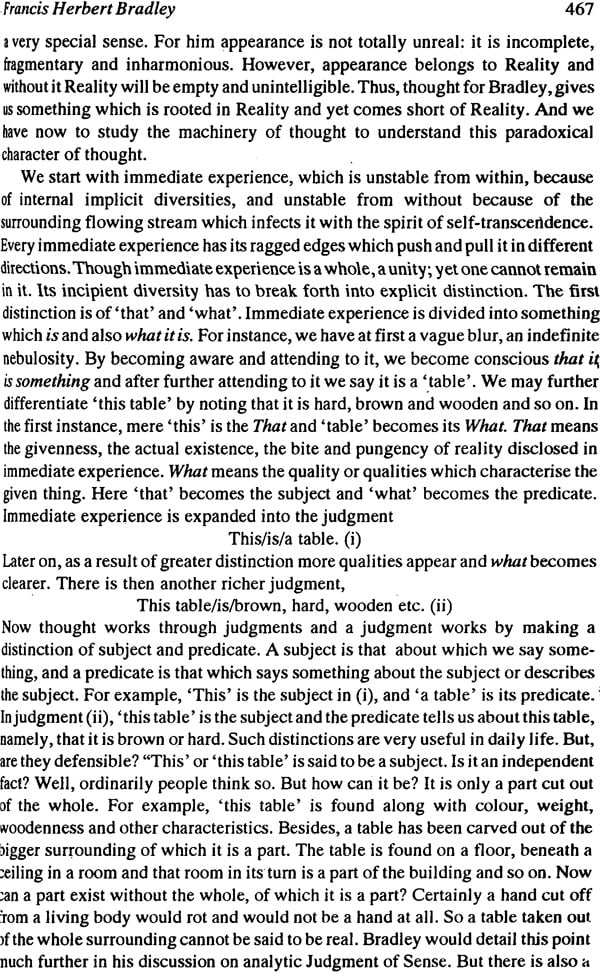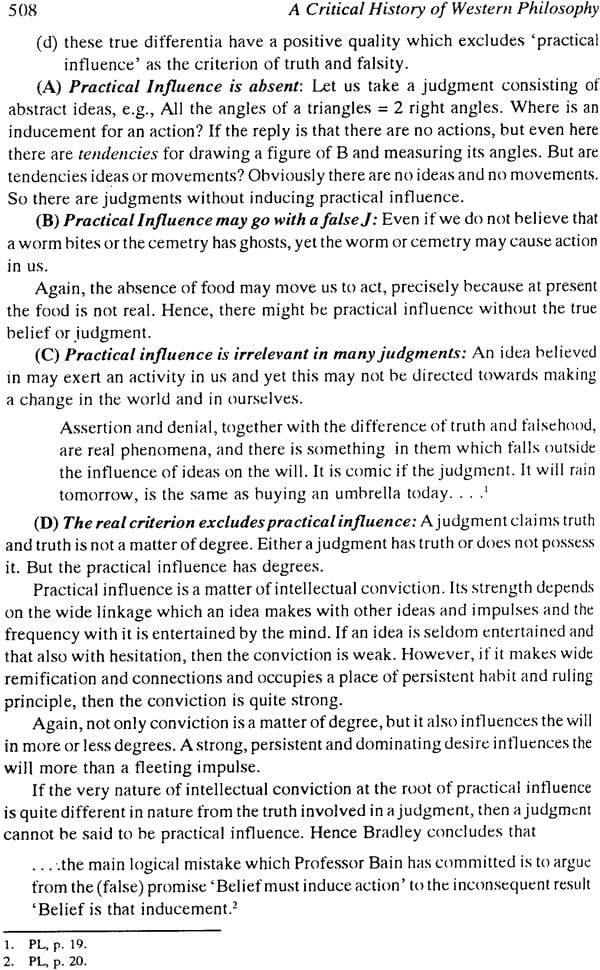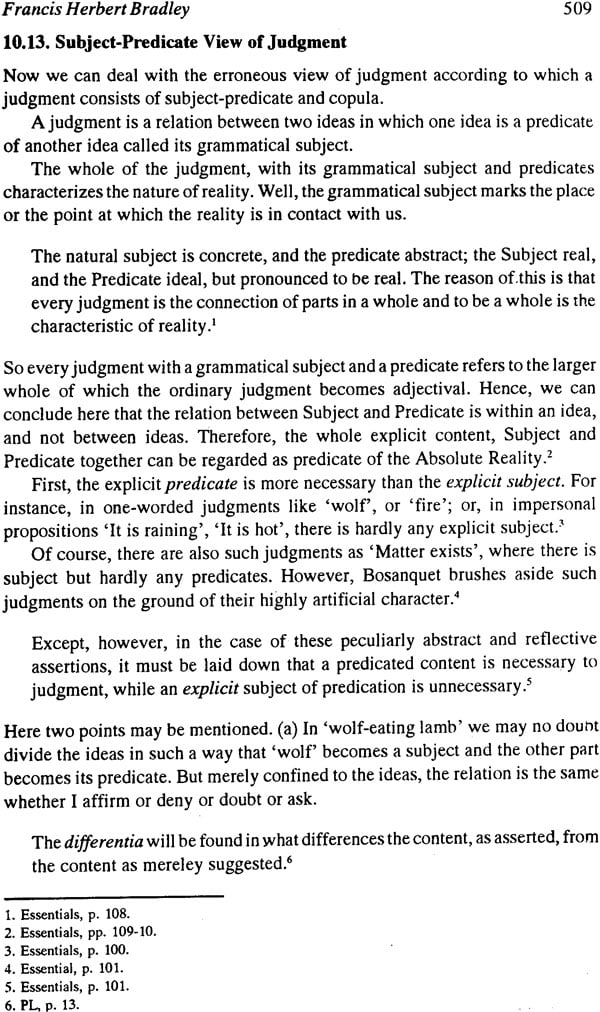
A Critical History of Western Philosophy (Greek, Medieval and Modern)
Book Specification
| Item Code: | NAM151 |
| Author: | Y. Masih |
| Publisher: | MOTILAL BANARSIDASS PUBLISHERS PVT. LTD. |
| Language: | English |
| Edition: | 2016 |
| ISBN: | 9788120812420 |
| Pages: | 599 |
| Cover: | Paperback |
| Other Details | 8.5 inch x 5.5 inch |
| Weight | 550 gm |
Book Description
This is the enlarged edition of a Critical History of Modern Philosophy. In this new edition Greek and Medieval Philosophies have been added. It is hoped that in the present form the book will of greater use to the Indian students.
The book also includes a critical and comparative account of the major contributions of eight modern thinkers. To this exposition the idealism of Hegel and Bradley has been introduced. Recent discussions concerning Hume, kant, Hegel and Bradley have also been incorporated. Whilst giving fully an analytic account of topics, the author maintains that philosophy is a holistic enterprise of man, as we find in Spinoza, Kant, Hegel and Bradley.
The book is the outcome of the author's long teaching experience in the University of Magadh. It has turned out to be a reliable and useful book of the students of the subject throughout India. This thoroughly revised and enlarged edition will prove to be all the more serviceable in general.
Dr. Y. Masih, Ph. D (Edinburgh), D. Litt. (Patna) was born on March 1, 1916. He retired in 1978 from his post of a professor of Magadh University. He remained a UGC Teacher of Philosophy from 1978 to 1983.
Dr. Masih has devoted his life in conducting and guiding research work in Philosophy. His important books are: Freudianism and Religion. The Hindu Religious Philosophy, The Classical Religious Philosophy of the Hindus, Shankara's Universal Philosophy of Religion, Sant Kabir ka Dharma Darshan, A Comparative Study of Religions, A Critical History of Western Philosophy etc.
In the early days of Logical Positivism it was contended that metaphysics is pseudoscience and as such it had to be denounced wholesale. In this connection some of the essays of Moritz Schlick, of Prof. R. Camap and Prof. A.J. Ayer's Language, Truth and Logic are worth-mentioning. However, even at this time it was suggested that after all metaphysics not be science at all. It may be just a kind of poetry. However, Prof. R. Carnap and Prof. A.J. Ayer reject this way of viewing metaphysics. Prof. R. Carnap remarks that the pages of metaphysics are full of arguments and polemics. But a poetry is never constituted of them. Hence, he does not regard metaphysics as poetry. In the same strain Prof. A.J. Ayer holds that a poem is a conscious attempt at expressing and arousing emotions of nonsensical statements. As opposed to this, a metaphysician unknowingly lapses into linguistic confusion in the vain attempt of knowing the world by non-scientific means.
Further, some positivists like Richard Von Mises do not accept the validity of the distinction between science and poetry. Mises holds that poetry does not indulge in nonsensical statements. Even poetry conveys, according to him, cognitive meaning. So metaphysics too, according to this writer is a sort of science. It is a form of science in its stage of beginning. Now most probably the majority of empiricists would not regard metaphysics as a form of science even in its initial stage. For them metaphysical statements lack cognitive meaningfulness. However, they may hold that these statements are characterised by significant nonsense (Wittgenstein), or, that they may be helpful in 'seeing the world in a fresh and interesting way', or that metaphysical statements are schizophrenic verbalism. Here the views of M. Lazerowitz interesting Like a dream, a metaphysical theory is a production of the unconscious and has both sense and motivation. We enjoy it or are repelled by it, it gives us pleasure or pain, a feeling of security or one of danger... A metaphysical theory, I shall try to show, is a verbal dream, the linguistic substructure of which has to be uncovered before we see what it comes to and how it produces its effect.
Within the pages of this book, I have assumed that the empirical attack has conclusively shown that metaphysics is not a cognitive enterprise. But I also hold that it has not undermined the foundation of metaphysics. Only a few metaphysicians could have taken metaphysics as a science of the transcendental entities or of the supersensible. The empirical attack has at least removed that confusion about metaphysics. The perennial philosophy both in the west and east has its concern with self-knowledge. It is not an accident that Socrates heard the oracles of Delphi 'Man! know thyself'. The most important school in India has repeatedly held that the vocation of philosophy is embodied in (know thyself). Hence, we can say that metaphysical statements aim at expressing and arousing the state of being a complete self or whole.
But can an individual become a whole being in commerce with his physical, social and cultural environment? The beautifully conveyed to us in Bernard Bosanquet's Individuality and Value, and The Value and Destiny of the Individual. And if an Individual has to live in an interactive relationship successfully, can he disregard the cognitive statements concerning empirical sciencesm relating to his environment? But as science has only an instrumental value for man, as Prof. John Macmurray has held in The Boundaries of Science, and as all the responses are in the service of restoring and preserving the psychical balance or equilibrium of an individual, according to Freud and C.G. Jung, so we can say that all cognitive statements remain subservient to the holistic tendency in man.
An response which helps an individual to satisfy his sovereign and master drive of becoming a whole certainly will have a rhapsodical resonance. But this feeling is quite distinct from affective and emotional states. It is eudaemonistic or bliss pertains to the whole being of an individual. Two things at once stand out in the holistic statements of metaphysics. First, arguments, mostly linguistic and logical, have to be carried out in order to have a genuine holistic state. Any holistic state felt in relation to a false world would be treated as misplaced and even illusory. Arguments and polemics do form an important part in any metaphysical discourse, whether it be Vedantic, Buddhistic or be Kantian and Hegelian. But cognitive statements determents the genuineness and appropriateness of our holistic state; the attainment of which remains the primary end of a metaphysician.
Secondly, the metaphysical language has to be skilfully used for evoking an holistic response. Theologians are now getting aware of convictional (W. Zuurdeeg) language and of the language of myth and parables (L.S. Thorton, Austin, Farrer and other image-linguists), for inducing numinous experience. In the same strain we can say that metaphysical language is delicately balanced by metaphors and analogies. For this reason the metaphysical language only superficially will be called as 'linguistic confusion'. Let me illustrate this point.
Theological statements assert that God omniscient, omnipotent and perfect. He has created the world out of Himself with a view to having creatures worthy of His fellowship. Such statements have purpose of firmly establishing an individual in his endeavour of becoming and realising himself as a thing of value in the station of life in which he is placed. He is in effect assured that his endeavour is not going to be rebuffed for the world is so made that his endeavour of becoming a whole by incorporating the cultural values of mankind must succeed. God and Creation statements are non-cognitive, but they have holistic meaning.
But even this holistic purpose would not be achieved if we do not show that holistic emotion is well founded as something supervening over cognitive achievements. Arguments and the marshalling of scientific facts are necessary for this assurance. But can cognitive statements guarantee this? No, not at all, but philosophical endeavours can show that after all holistic emotions are not unworthy of conscious organisms who have developed reason by way of administering the satisfaction of man's need. All arguments and polemics are so many persuasive statements.
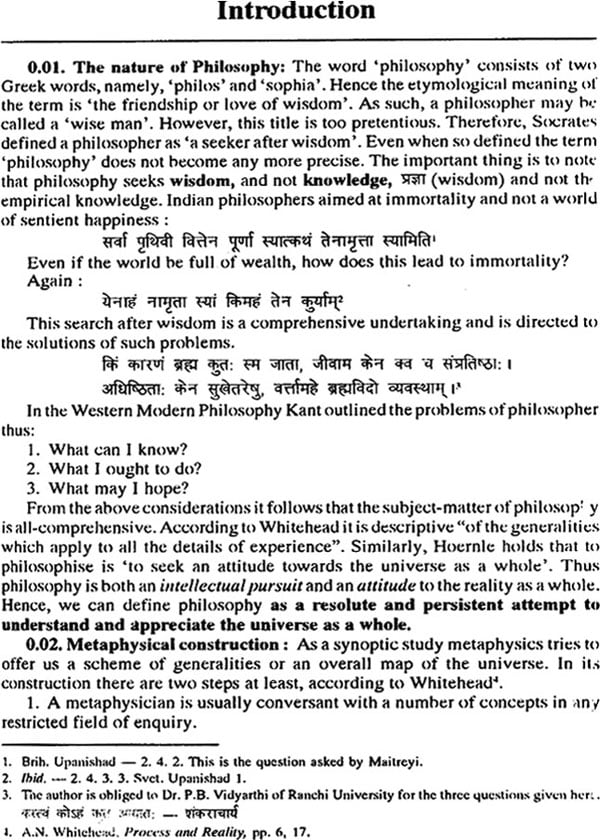


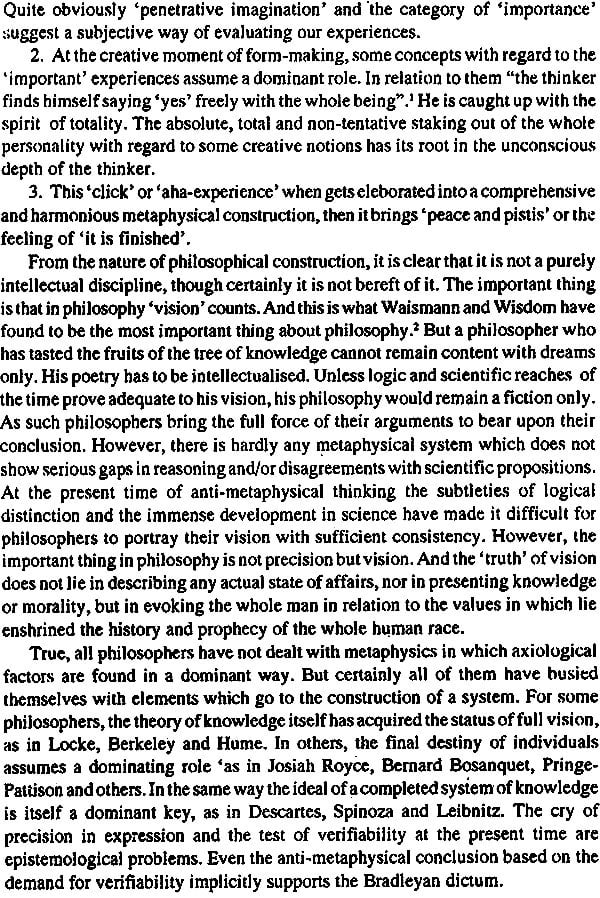
| Preface to Fifth Revised and Enlarged Edition | v | |
| Preface | vii | |
| Introduction | xvii | |
| | ||
| Chapter 1: | The Nature of Greek Philosophy | Jan-30 |
| Chapter 2: | Greek System | 31-113 |
| Chapter 3: | Semi-Socratic and Greco-Roman Ethics | 114-140 |
| Chapter 4: | Medieval Philosophy | 141-178 |
| Chapter 5: | Summary of Some Important Topics in Greek and Medieval Philosophy | 179-190 |
| | ||
| Chapter 1: | Francis Bacon (1561-1626) | 193-198 |
| Chapter 2: | Rene Descartes (1596-1650) | 199-218 |
| Chapter 3: | Benedict de Spinoza (1632-1677) | 219-244 |
| Chapter 4: | Gottfried Wilhelm Leibnitz (1646-1716) | 219-264 |
| Chapter 5: | John Locke (1632-1704) | 265-289 |
| Chapter 6: | George Berkeley (1685-1753) | 290-313 |
| Chapter 7: | David Hume (1711-1776) | 314-329 |
| Chapter 8: | Immanuel Kant (1711-1804) | 330-399 |
| Chapter 9: | George Wilhelm Eriedrich hegel (1770-1831) | 400-452 |
| Chapter 10: | Francis Herbart Bradley (1846-1924) | 453-538 |
| Questions for Exercise | 539-560 | |
| Index | 561 |

